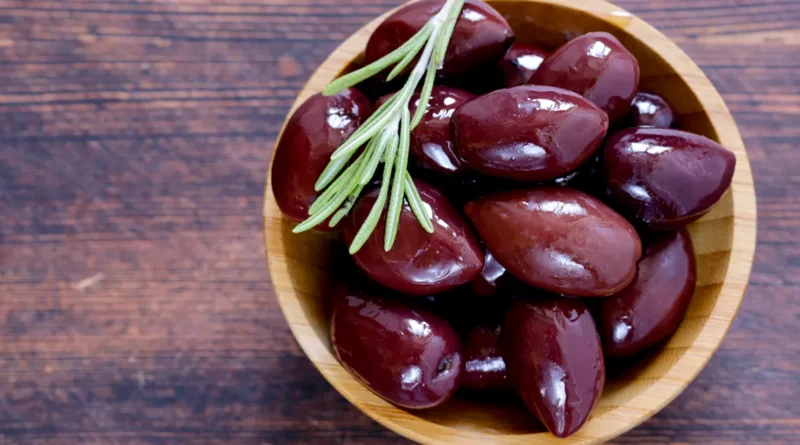Kalamata Olive: A Rich and Flavorful Gem from Greece
Kalamata Olive: A Rich and Flavorful Gem from Greece
Kalamata olives are a staple in Mediterranean cuisine, known for their distinct flavor, glossy skin, and rich nutritional profile. These deep purple to black olives hail from the region of Kalamata in southern Greece, where the fertile soil and favorable climate combine to create one of the most revered olive varieties in the world.
The Origins and History of Kalamata Olives
Kalamata olives derive their name from the city of Kalamata in the Messenia region of the Peloponnese peninsula in Greece. Their history is deeply rooted in Greek culture, with olives playing a vital role in ancient Greek agriculture, trade, and diet. Olives, in general, are one of the oldest cultivated crops in human history, with evidence of their domestication dating back over 5,000 years.
The trees that bear these olives are typically large and produce fleshy, almond-shaped fruits.
The history of Kalamata olives is closely linked to the cultural and religious practices of Greece.In modern Greece, olive trees and olives symbolize peace, victory, and prosperity.
The Cultivation Process
The cultivation of Kalamata olives is a labor-intensive process that requires the perfect combination of soil, weather, and care.
One of the key differences between Kalamata olives and other types is the method of processing. After harvesting, the olives are usually hand-picked to avoid bruising.Traditionally, they are fermented in brine or vinegar for several months. This curing process not only makes the olives edible but also enhances their deep, fruity flavor.
This method gives the olives a slightly different texture and allows the brine to penetrate more deeply into the fruit. The combination of salt, water, and time creates the unique taste that Kalamata olives are famous for.
Nutritional Benefits of Kalamata Olives
In addition to healthy fats, Kalamata olives contain important antioxidants, such as polyphenols and vitamin E, which have anti-inflammatory properties.
Kalamata olives are also a good source of dietary fiber, which aids in digestion and promotes a healthy gut. Furthermore, they provide essential minerals like iron, calcium, and copper, which contribute to overall well-being, including bone health and immune function.
Despite their health benefits, Kalamata olives are high in sodium due to the brining process.
Culinary Uses of Kalamata Olives
The versatility of Kalamata olives makes them a favorite ingredient in Mediterranean cuisine and beyond.Here are some of the most common culinary uses of Kalamata olives:
- Salads: Kalamata olives are often used in traditional Greek salads, paired with fresh tomatoes, cucumbers, feta cheese, and oregano. Their salty, briny flavor complements the freshness of the vegetables, creating a harmonious balance of flavors.
- Tapenade: Kalamata olives can be blended with capers, garlic, olive oil, and lemon juice to make a delicious tapenade. This olive paste can be spread on bread, used as a dip, or incorporated into pasta dishes.
- Pizza and Pasta: Kalamata olives are a popular topping for pizzas, especially those with Mediterranean-inspired ingredients like feta cheese, artichokes, and sun-dried tomatoes. They also work well in pasta dishes, adding a savory note that pairs perfectly with tomato-based sauces.
- Appetizers: Whole Kalamata olives make for a simple and elegant appetizer, either served on their own or alongside cheeses, cured meats, and crusty bread.
- Olive Oil Production: While Kalamata olives are typically enjoyed whole, they can also be pressed into olive oil. Kalamata olive oil is known for its fruity flavor and slightly peppery finish, making it ideal for drizzling over salads or using as a finishing oil in various dishes.
The Cultural Significance of Kalamata Olives
Kalamata olives are not just a culinary ingredient; they are also deeply embedded in the culture and traditions of Greece. In many Greek households, olives are a symbol of hospitality and are often served to guests as part of a welcoming meal. Olive trees, with their deep roots and longevity, are considered sacred in Greek culture, representing peace, wisdom, and endurance.
The importance of olives to Greek life extends beyond the kitchen.The ancient Greeks believed that olive oil had healing properties and used it to treat wounds and skin conditions. Olive oil lamps were also common in ancient Greek temples, symbolizing the light of wisdom and knowledge.
Even today, olive trees are revered in Greece, and their cultivation is a point of national pride. Many families in Greece own olive groves that have been passed down for generations, and the annual olive harvest is a time of celebration and community bonding.
Conclusion
Kalamata olives are more than just a delicious fruit; they are a symbol of Greek culture, history, and tradition. With their rich flavor, impressive nutritional benefits, and versatile culinary uses, it’s no wonder that Kalamata olives have earned their place as a beloved staple in kitchens around the world. Whether enjoyed on their own, added to a dish, or pressed into oil, Kalamata olives offer a taste of the Mediterranean that is both satisfying and nourishing.
From their ancient roots in Greek agriculture to their modern-day prominence on restaurant menus and home kitchens, Kalamata olives continue to captivate food lovers with their unique taste and storied history.
